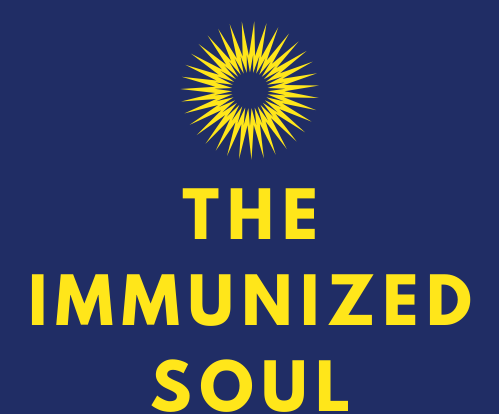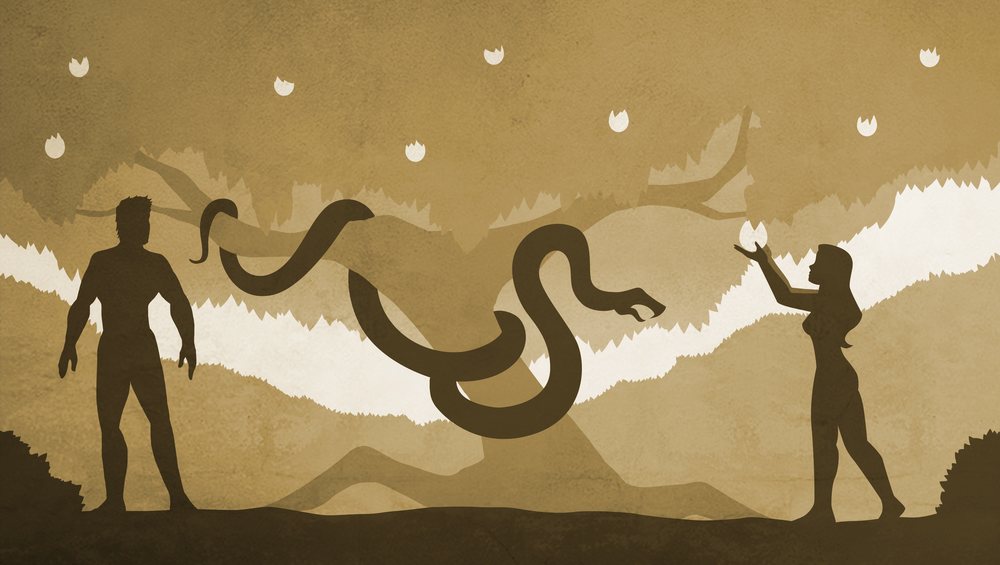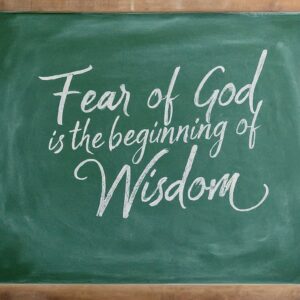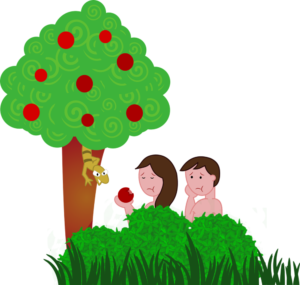What Does The Story Of Adam And Eve Teach Us?
The story offers various lessons on the fundamental truth of mankind’s struggles till this day. That said, I think these are the four most important lessons from the Garden of Eden.
The Perils Of Blaming And Misleading
When God asked Adam if he ate from the Forbidden Tree his response was “The woman you put at my side — she gave me of the tree, and I ate.”
Likewise, when God asked the woman about her part in this breach of “fruit eating” protocol she replied, “The serpent duped me and I ate.”
But wait! The lack of responsibility doesn’t end with these two quotes.
The very first verse of Genesis (chapter 3) has the serpent asking the woman, “Did God really say: You shall not eat of any tree of the garden?”
To which the woman replied, “It is only about the fruit of the tree in the middle of the garden that God said, ‘You shall not eat of it, or touch it, lest you die.”
The first set of quotes obviously pass the buck and directly blame someone else. The second set are clear distortions of God’s original words.
In any case, both of these negative tactics have disastrous outcomes in our world today.
Blaming others for our mistakes can become a serious character flaw if left unchecked. Mistakes or bad things that happen to us should be regarded as learning opportunities. Not opportunities to blame, as many in our society do.
The “blame-game” is largely responsible for the corrupted spirit in our current culture. Politicians blame nefarious forces(e.g., Russia) for election losses. Or rigged voting procedures.
In 2021, the great hoax perpetrated by celebrity Jussie Smollett blamed an entire political party for his plight. The current president(Biden) blames Covid primarily for his high disapproval numbers, not his awful policies on handling the virus.
The corrosive effect all this “passing the buck” has on a society is a general lack of personal responsibility by a segment of the population. Nobody is responsible for their choices. So in certain “unwise” cities lawlessness is at an all-time high. At its core, all due to blaming another and not taking personal responsibility.
Purposely making misleading statements is equally contemptible. You don’t need to look any further at how disastrous misstatements are than to look at the current state of our world.
But first, here’s a quick breakdown of the misleading statements regarding the serpent and the woman:
- The serpent says, “Did God really say: You shall not eat of any tree of the garden?” ……. (Well no, God didn’t. God only prohibited eating from one tree. But the serpent’s words can be misleading and put forth a tone of God’s lack of fairness towards the woman.)
- The woman says, “We may eat the fruit of the other trees of the garden. It is only about the fruit of the tree in the middle of the garden that God said, ‘You shall not eat of it, or touch it, lest you die.’” ……… (Again, no God didn’t. First, the woman misrepresents the location of the Tree Of Knowledge Of Good and Evil(i.e., the Forbidden Tree). The Tree of Knowledge was not the one God referred to as being in the middle of the garden. Secondly, God did not prohibit touching the Tree of Knowledge. The order was to not eat from it. And thirdly, the woman’s “lest you die” statement sounds less impactful and less ominous than God’s actual words of “on the day you eat from it, you will surely die.”
As subtle as these inconsistencies may sound, they can add up to a totally different picture of God’s original commands. One can argue that these misrepresentations led the woman to sense a vibe of unfairness towards her. And also, a diminished sense of urgency about following God’s commands.
So ultimately, she disobeyed. She ate the forbidden fruit.
And as you may be aware, misleading statements can have the same serious outcomes in our day as well.
Is ethnic bias/racism at the forefront in our society as many make it seem? Is misogyny? Is white supremacy? Or is police misconduct?
All of these notions currently being put forth in our culture are misleading and overstated. But all have led to a needless degree of societal upheaval.
Ultimately, the optimal path to reach the moral growth that God expects from His creations is founded in truth. And this fact is one of the big lessons from Adam and Eve. In short, God expects us to “come clean” and be accountable when we falter.
But sadly, these days, it seems these bad character flaws of stating falsehoods and dealing in misrepresentations remain a global epidemic.
Choose Your Friends & Influences Wisely
There’s another deeper teaching in the story of Adam and Eve I came across.
Initially, it may seem like the serpent purposely set out to undermine God and lead the humans astray.
But in reality, the serpent was just being a serpent. It was just being an animal.
And as such, animals don’t play by the same rules humans do.
How?
Well, for one, animals fully rely on their God given instincts to live and survive. Instincts are an animal’s inner voice or in a sense — their connection to God.
Humans have inner instincts also. But what we also have that animals don’t is an “outer voice” that connects us to God in the form of a conscience.
We have a brain that reasons. The reason an animal can’t be held accountable for “sinning” is because they are incapable of understanding good and evil.
Because of our intellect, humans are able to heed the voice of God from the outside. We can study the Bible and other faith-based sources.
What this means is that the serpent was simply speaking to the woman from the perspective of an animal.
The serpent’s opening line is, “Did God really say: You shall not eat of any tree of the garden?”
Not only is the message incorrect but there’s also a hint of bewilderment from the serpent’s statement. Almost as if to say — “If God did say that…So what?”
And what the serpent’s tone conveys is a sense of “why don’t you do what you want to do?” Or in other words, “why wouldn’t you do what your instincts desire you to do?”
After all, that’s what an animal like the serpent would do. The serpent doesn’t understand a voice from the “outside”(i.e., God) making moral demands on it. The serpent understands inner instincts and does what it wants, when it wants.
So what does the story of Adam and Eve teach us in this case?
To put it simply — be aware of the influences in your life. And their possibly differing perspectives.
Try to ascertain how the people you rely on for advice are morally grounded. In other words, where are they coming from? What’s the root of their moral perspective? Understand how they see life before putting too much stock in their advice.
I’m pretty sure the woman could have used this advice as well — way back when.
“Get Over Yourself”…And Seek God’s Advice
As the story of Adam and Eve clearly points out, people, whether consciously or subconsciously, falter when they stop seeing God as THE moral authority in the universe.
How does this happen?
To figure this out we have to understand what “good” is to God. If you notice all through the beginning chapters of Genesis, God decrees many things that are good.
In essence, God’s perspective is that a thing is good when it fulfills its purpose. For example, a car is not good because it looks awesome. A car is good because it does what it’s supposed to do, namely take you from A to B.
Similarly, before the “eating from the Forbidden Tree incident” humans had a purpose in God’s eyes. Man was to be aware of/know his Creator and cultivate the garden. God also implores man to be “fruitful and multiply.”
Basically, man is good when he lives by God’s moral standards. And that fulfills God’s purpose for us. It also gives man the best opportunity for a purposeful and satisfying existence.
The problem was that after eating the fruit of the Forbidden Tree “our eyes became opened.” God says in Genesis (3:22), “Now that man has become like one of us, knowing good and evil….”.
What this refers to is now man has the ability to determine what is “good and evil” — for themselves. And no longer will man necessarily follow God’s moral system of what “good and evil” are. Because now man has the ability to use their free will to determine what’s right and wrong for themselves.
And there it is — this has been the central struggle of mankind since that fateful decision to eat from the Tree Of Knowledge Of Good And Evil.
Do we abide by God’s idea of “good and evil”? Or do we rely on our own judgment of “good and evil”?
Needless to say, there are many instances we humans deem things bad/evil that wouldn’t necessarily be so from God’s perspective. Believe it or not — not all pain and suffering is evil from God’s point-of-view.
But the big takeaway from this teaching is that, at the end of the day, only God can truly know what’s good or evil. Because only God knows what His own purposes are for the things that happen in this world. And that’s because, ultimately, only God knows what is useful to Him.
So our “eyes being opened” to good and evil has served more to confuse and confound our lives. Because we don’t know God’s ultimate purpose for the things that exist in our world.
But still, many of us proceed to live our lives like “we go it.” We don’t need any divine guidance. We have this “judging good and evil” thing fully under control.
These days examples are plentiful of erroneous man made “judgements” of what’s good and what’s evil.
The entire political debate regarding abortion is a perfect example of man applying his own moral standard. Both sides think they are morally superior to the other. But only one side is on the side of God. The other? Is mightily misguided and self-righteous.
But the point here is confusion runs amok when God’s moral standard is not paramount among all of His creations.
And this idea that “we know better” is one of the legacies of the Forbidden Tree incident.
For instance, some in our society think they know better when it comes to matters of justice and policing. Is “defunding” the police a good idea? Or is it just to not prosecute looters and rioters in our society?
Ultimately, the best way for us to judge what is “good and evil” is by referring to God’s word. Immersing ourselves in God’s teachings. And getting reacquainted with God’s moral system.
Only this way will we be able to understand better the things that are good and maybe not so good for us. From the perspective of THE Ultimate Authority in the universe.
And all it would take is humbling ourselves. As known as, “getting over ourselves.” Then hopefully turn down the self-righteous meter a notch or two. And increase our reliance on God’s moral code for a change.
Manage Your Urges & Negative Desires
Closely related to man’s struggle of deciphering good and evil (without God) is the task of harnessing our drives (i.e., controlling our urges and reigning in our desires).
One of the central aspects of the Adam and Eve story revolves around their increased desires and drives after eating from the Tree of Knowledge. All due to their newfound awareness regarding good and evil.
No longer was man’s soul primarily pure, pristine and in sync with God. Having disobeyed God’s orders opened the door to sin in our lives. By revealing and heightening negative drives of egotism, selfishness, hedonism…etc. As well as, the aforementioned sense of moral judgment about good and evil.
Basically, man now possessed a full spectrum of God-like sensitivities. The good and the bad. But unlike God, without the ability to fully control or have complete command of said “powers” because of our human nature.
And as you can imagine, this is man’s struggle till this day. Or more like a dance.
Man toils in order to reconcile our original pristine Godly soul with the negative urges unearthed by Adam and Eve’s act of disobedience. Our Godly soul craves communion with our Creator. These negative urges work to pull us away from God. And so this dance continues throughout time.
This new reality is first reflected in Genesis (4:7). And God says:
“Sin is crouching at the door, and it desires you….”
This is the first time in the Bible that sin is mentioned by name. And it underscores the new challenges against these powerful negative forces that await mankind.
Knowing good and evil means the ability to choose between the two. But the challenge to choose good becomes clouded by all the added negative forces that come with knowing evil.
The good news is God does not present us with challenges we cannot overcome. From God’s perspective, challenges and hardships are good. They are opportunities to mature and get better. Instead of sinking into despair and shame for our bad deeds, God expects our reaction to be acknowledgement, improvement and growth.
Which was the exact opposite reaction of the man and the woman after they ate from the Forbidden Tree. And for that they were banned.
If we were to adopt the latter principles every time we falter we would quickly get a handle on the negative tendencies that can derail our lives. This would lead to a clearer connection with our Maker. And a better (overall) satisfaction with our lives.
So Again — What Does The Story Of Adam And Eve Teach Us About Our Current Reality?
Think about it. We currently live in a world where good and evil is directly linked to our ability to control our desires and passions. This is the ultimate battle of man.
Some of us have a more pronounced sense of “being like God.” Of adhering primarily to our personal sense of “right and wrong.” Relying on our own untamed sense of morality, rather than heeding God’s moral code.
But…..NEWS FLASH!!! We are not God. God is perfect at deciphering what the ultimate good of anything is. God is perfect at utilizing His drives and attributes to serve their best purpose.
The solution for us is simple.
To be more in alignment with our Creator’s moral standards than our own. To constantly acknowledge and be aware that we need “outside” help to manage and control our desires.
Be it to control our level of food consumption. Our level of anger. Our level of jealousy. So on and so on.
This mishandling of our urges and drives go a long way into defining and shaping our perspective of good and evil.
So…go back. Go back to a more objective sense of reality. Just like it was before Adam and Eve ate from the Tree Of Knowledge Of Good And Evil.
Only this action can bring back the spiritual balance in our lives that will allow us to direct our heightened desires, passions and drives — effectively.
How Do We Go Back To A More Objective Sense Of Reality?
Simply put — by heeding the advice found in Proverbs (3:18):
“She is a tree of life to those who grasp her, And whoever holds on to her is happy.”
And, of course, the “she” in this verse refers to none other than…WISDOM!!! Biblical wisdom to be exact.
Yes, the Bible is today’s Tree Of Life. Specifically, the first five books of Moses.
And it was designed to help restore the balance of man’s psyche. A psyche that has been clouded by the heightened role our negative desires/drives have played ever since Adam and Eve sinned.
Simply put, the Bible’s wisdom is our alignment vehicle to God’s will and moral standard.
Here’s praying that more and more young people around the world come to realize the truth in this message.
-J







